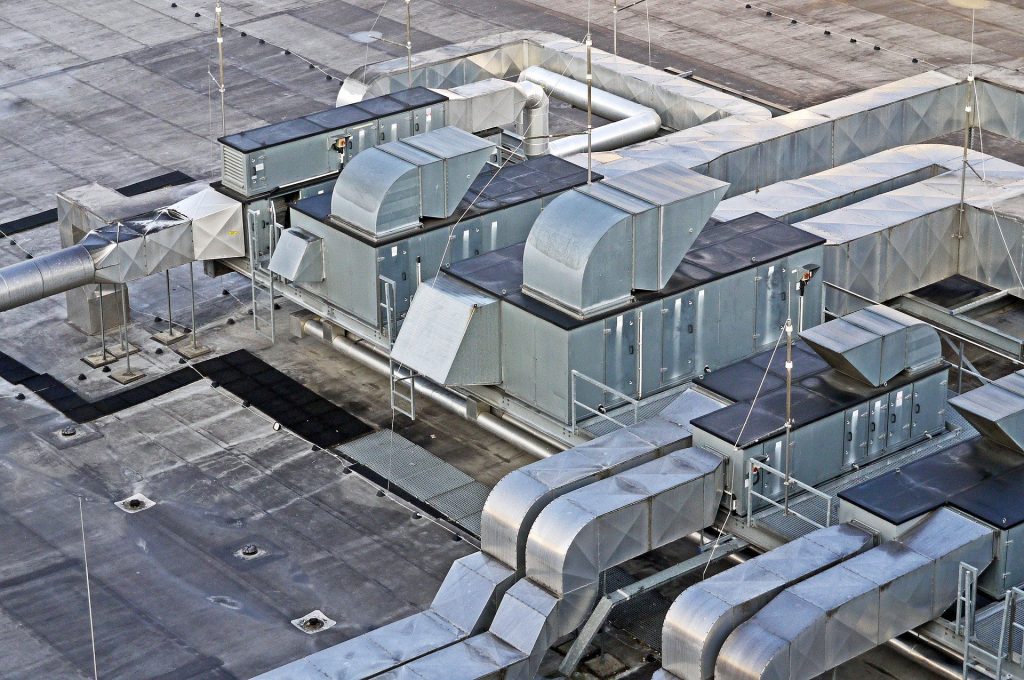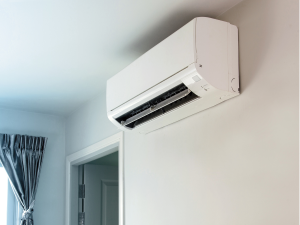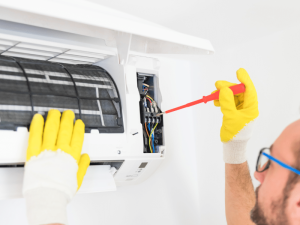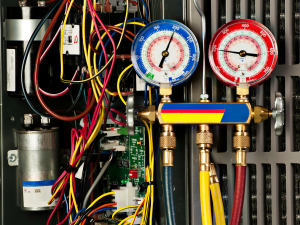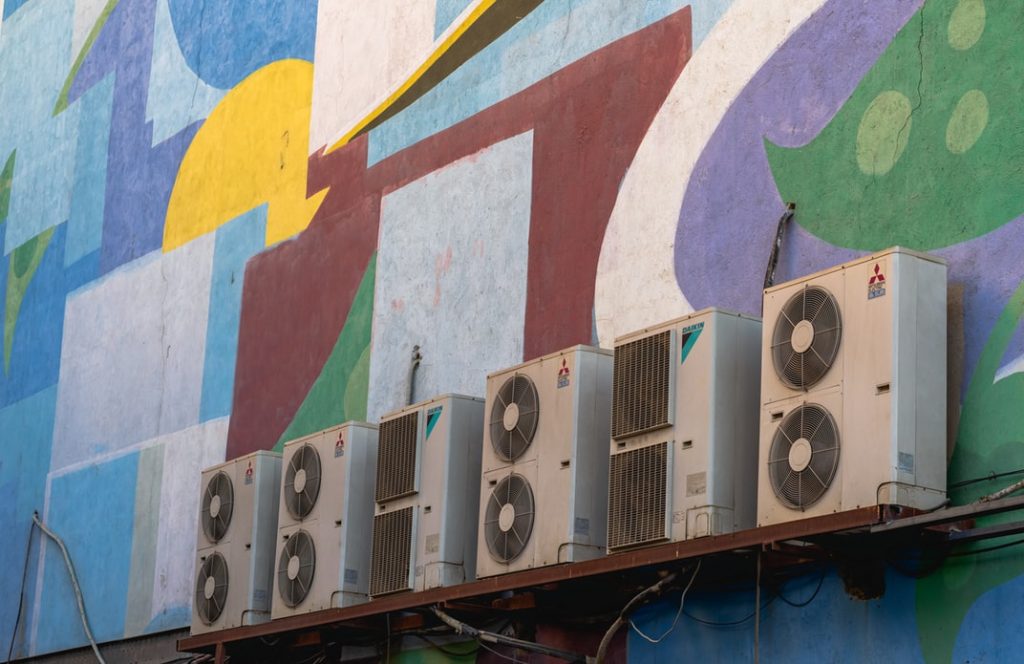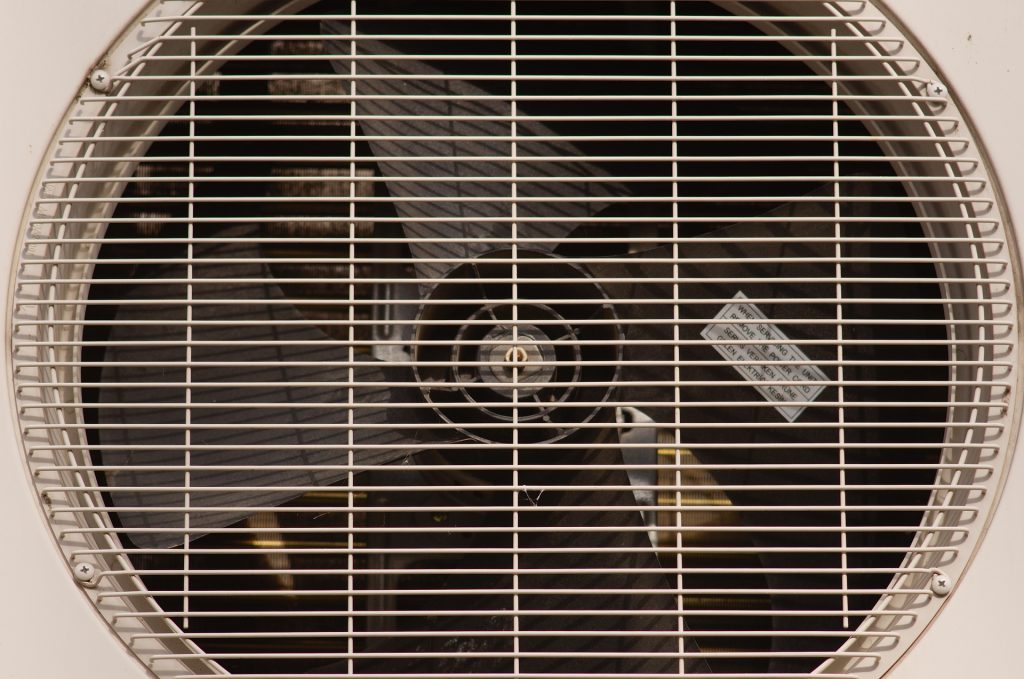Heat pumps and air conditioners might seem like similar (or even identical) devices. However, there are several subtle differences between the two. In this post, we’ll explore those differences to help you understand which device best suits your needs.
Heat Pump vs. Air Conditioner: The Basics
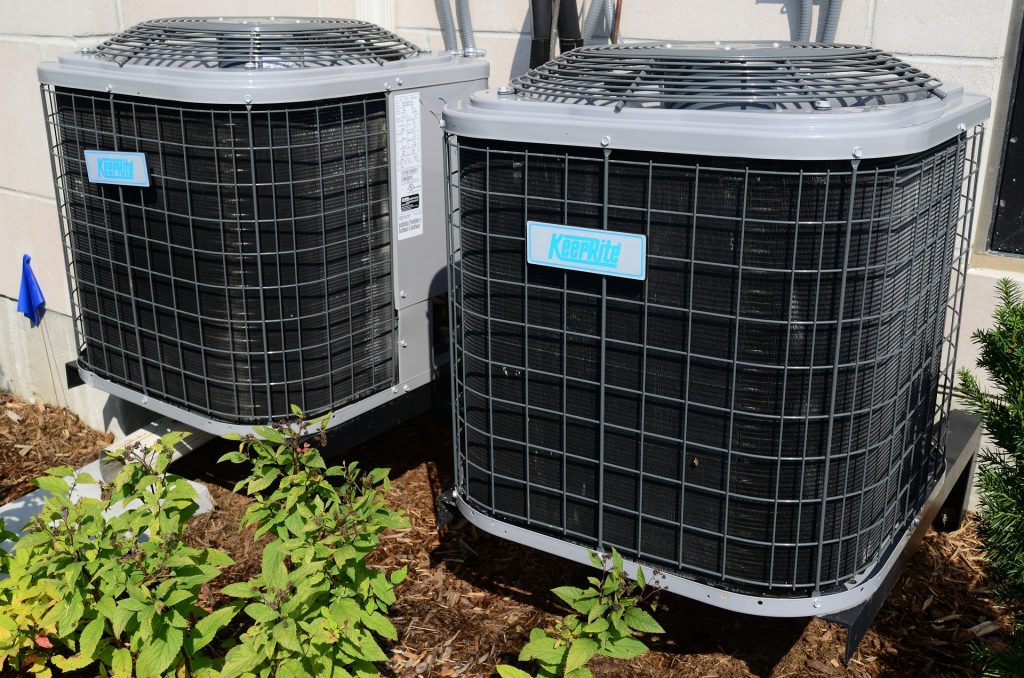
What Is A Heat Pump vs. An Air Conditioner?
Let’s start with the similarities.
A heat pump and an air conditioner can both cool your home. Both devices come in two parts; one inside your home and one outside. These components work together to pump warm air out of your home.
Heat pumps and air conditioners also both contain refrigerants that actively cool the inside of your home.
So what’s the difference between an air conditioner vs. a heat pump? Well, a heat pump can actually run in reverse as well. In other words, it can heat your home. This is advantageous for people who live in climates where it gets a bit chilly but not enough to justify spending money on a full furnace.
How A Heat Pump Warms Your Home
When running in reverse, a heat pump absorbs any heat outside. It funnels that heat back into your home.
Exactly where it absorbs that heat from depends on what type of heat pump you have. There are three types, which we’ll summarize briefly below.
- Air-To-Air Heat Pumps
These units (also known as air-source heat pumps) draw and expels heat through the air outside your home.
- Water Source Heat Pumps
Water source heat pumps draw and expel air using — yup, you guessed it — a body of water. This setup usually consists of pipes laying at the bottom of the body of water.
- Geothermal Heat Pumps
This type of heat pump relies on the ground for transferring heat.
So Is A Heat Pump Also An Air Conditioner?
Some people (such as our friendly neighbors up north) do refer to air conditioners as “heat pumps.” However, in the HVAC industry, most professionals refer to them separately. This is due to more than just the basic differences we’ve highlighted so far, as you’ll see in the upcoming sections.
Air Conditioner vs. Heat Pump: Which Is Right For You?
Here are a few factors you need to consider when choosing between a central air conditioner vs. a heat pump.
Climate
As briefly mentioned earlier, heat pumps are advantageous for those who live in moderate climates. If it dips below 30 degrees regularly, a heat pump (which is designed to use minimal energy) will be insufficient for keeping your home comfortable. Here’s an article for more information on “What is the coldest temperature for an air conditioner“
Here’s the issue in a nutshell.
Moving heat from one climate (inside your home) to another (outside) requires very little energy if those two climates are not that far off from each other.
This is why people in moderate climates (unlike Arizona, where it dips below 30 regularly during the winter months) use heat pumps as a means of reducing their home energy bills. The heating and cooling don’t need to be as intense. You can also check our article on “Window Unit vs Central Air Conditioner” for more information about air conditioner costs.
Heat Pump vs. Air Conditioner Cost
Heat pumps tend to cost slightly more than air conditioners in Phoenix. When comparing heat pump vs. air conditioner costs, though, you need to take into account that, under the right circumstances, a heat pump can be an ‘all-in-one’ system. In other words, in the right climate, a heat pump can save homeowners the cost of installing two units; an air conditioner and a furnace.
In the wrong climate, though, a heat pump will be more expensive to run. These units run on electricity, which is often more expensive than gas. You should also be aware that, below about 40 degrees, heat pumps ramp up their electricity usage.
Check our article about the average electric bill in Phoenix during the summer for more information.
Additionally, heat pumps require maintenance and have a shorter lifespan than furnaces. This increases the long-term cost of using one.
Environmental Concerns
When comparing a heat pump vs. an air conditioner, the difference in terms of environmental friendliness is also worth considering. Despite common misconceptions, natural gas used in residential applications is actually fairly environmentally-friendly.
Until we have more sustainable methods of reliably producing electricity on a large scale, using a natural gas-powered furnace will be more environmentally-friendly than running your electric-powered heat pump all year round.
Maintenance Concerns
In many regions of America, air conditioners run during summer and then lie dormant for the winter months. A heat pump that runs year-round will amass much more wear and tear, requiring maintenance more frequently.
For example, you’ll need to change filters more often. Depending on a variety of factors (including air quality in your area), the added cost of filters alone may render any savings you get from your heat pump negligible.
Serviceability
No matter what HVAC system you choose, it’s imperative that you find technicians in your area capable of servicing it properly. As mentioned in this article, this can be a challenge with heat pumps.
Inadequate ductwork, in particular, is a major challenge with heat pumps. Air conditioners are less finicky in this regard, whereas heat pumps become very inefficient in this scenario. Inexperienced technicians often mistakenly assume that this inefficiency is the result of low refrigerant levels. This misdiagnosis can become quite frustrating for homeowners.
Your Exact Needs
When choosing between a central air conditioner vs. a heat pump, you also need to consider exactly what you are hoping to achieve.
If lowering your heating costs is your primary concern, you should not immediately jump up and buy a heat pump. It may be possible to lower heating costs by optimizing your insulation instead.
Understanding Heat Pump and Air Conditioner Efficiency Ratings
Heat pumps and air conditioners use different energy efficiency rating methods. Air conditioners rely on SEER while HSPF is the rating system for heat pumps.
SEER stands for Seasonal Energy Efficiency Ratio. Befitting of the fact that air conditioners are only designed for cooling, the SEER rating system only informs you of how efficient your air conditioner is for that purpose. A heat pump’s HSPF rating tells you how efficient it is at heating.
The higher these numbers are, the more efficient your system is.
This is pretty straightforward when you’re buying an air conditioner. When you’re buying a heat pump, however, you’ll want to focus on the rating that best represents where most of your demand lies. For example, if you require heating more often than you require cooling, focus on the HSPF rating, and vice versa.
Heat Pump vs. Air Conditioner Difference: Conclusion
Heat pumps and air conditioners are similar but have a number of notable differences. A heat pump is able to not only cool but also run in reverse, heating your home.
There’s a catch, however; heat pumps are only suitable for moderate climates in which the heating requirements are not as intensive. If the temperature in your area dips below 30 degrees regularly, you would be wise to consider buying an air conditioner and a separate heating apparatus.
Further, while heat pumps can lower your heating expenses under the right circumstances, you should also keep in mind that they rely on electricity, which is often more expensive than natural gas.
We encourage you to get in touch with an HVAC professional (such as us at American Home Water and Air) to determine which device is best for your home. You can also check our article on “Mini split ac vs central air” which might help you in choosing the right AC.
We’ve been in the HVAC business in Phoenix for more than 30 years and we look forward to assisting you!
Frequently Asked Questions
Which is better – a heat pump or an air conditioner?
Each unit is suited toward different circumstances. An air conditioner is great if you have an existing heating system or live in an area with an extreme temperature range. Heat pumps work well if you live in a moderate climate.
What are the disadvantages of a heat pump?
Heat pumps can be costly upfront, difficult to install, and unsuitable for many climates in the United States.
Can a heat pump heat a whole house?
If you get a heat pump with sufficient enough capacity, then yes. This is another area in which you should take care to compare the cost between a heat pump and an air conditioner; depending on the capacity and efficiency you’re looking for, an air conditioner could end up being much cheaper.


